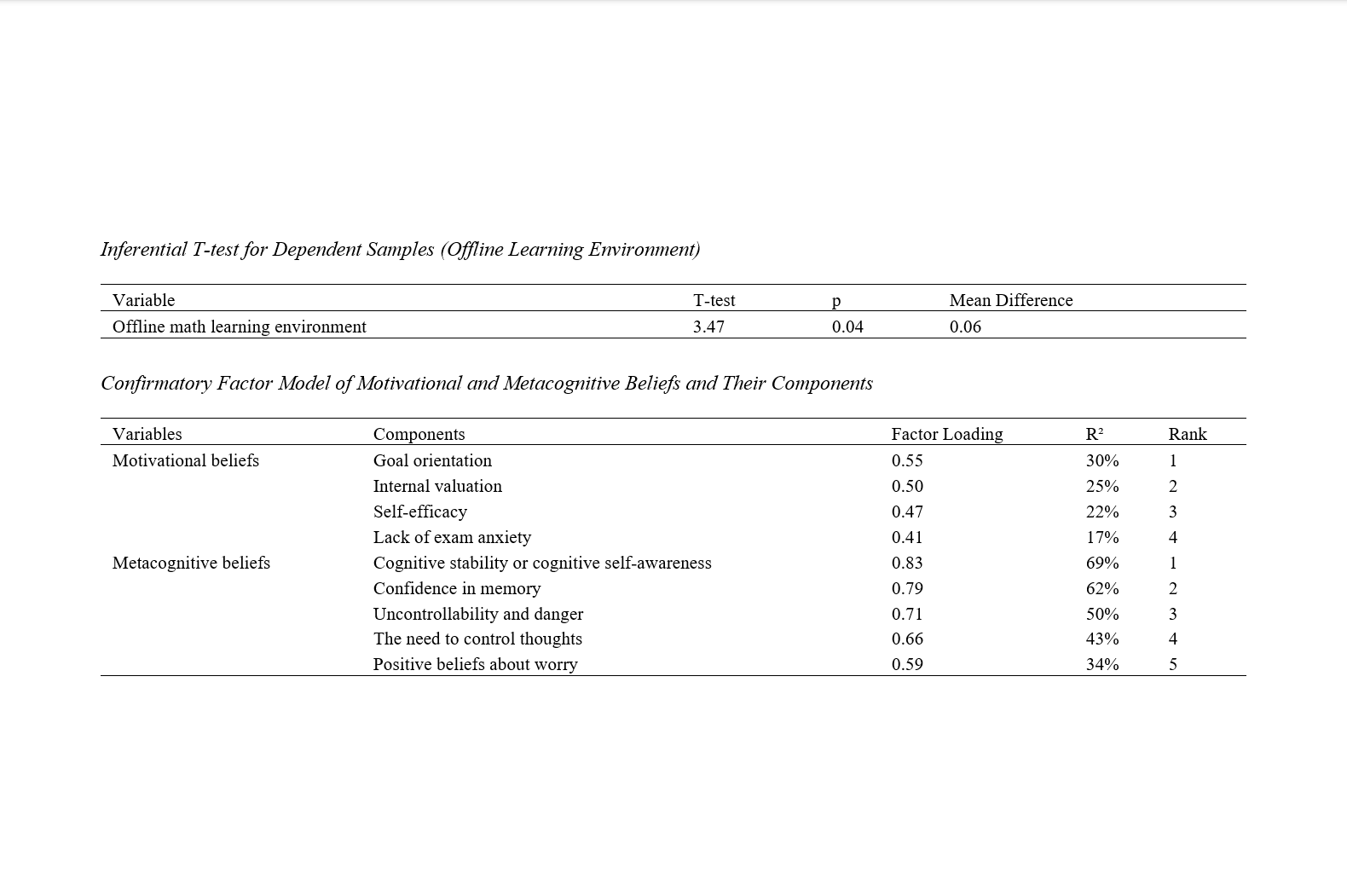Normalization of the Motivational and Metacognitive Beliefs Scale for Secondary School Students Regarding Online and Offline Mathematics Learning Environments
Keywords:
Motivational Beliefs, Metacognitive Beliefs, Normalization, Secondary School Students, Learning EnvironmentAbstract
Objective: The aim of this study was to norm the motivational and metacognitive beliefs in online and offline learning environments.
Methods and Materials: This study is applied in terms of its objective and descriptive-survey in terms of its methodology. The statistical population of the research included all seventh-grade male students in the city of Manoojan during the 2020-2021 academic year. A convenience sampling method was used in this study, where, based on the Morgan table, 265 students receiving offline and online mathematics instruction were selected. The research tools in this study were the Motivational Beliefs Questionnaire (Pintrich et al., 1991) and the Metacognitive Beliefs Questionnaire (Wells, 2004). Data analysis was performed using SPSS 26 and AMOS 22 software.
Findings: Among the 25 items of the Motivational Beliefs Questionnaire and 30 items of the Metacognitive Beliefs Questionnaire, the content validity index for all items was confirmed as being above 0.70. The Motivational Beliefs Questionnaire included 25 items and four components: goal orientation, intrinsic value, self-efficacy, and test anxiety. The Metacognitive Beliefs Questionnaire included 30 items and five components: cognitive awareness, memory confidence, uncontrollability and danger, need to control thoughts, and positive beliefs about worry. The factor loadings for all items were above 0.50, Cronbach's alpha reliability for all components was above 0.70, and the average variance extracted for all components was above 0.50.
Conclusion: The results indicated that the measurement tools for assessing motivational and metacognitive beliefs in online learning environments for students have appropriate validity. Educational specialists and planners can use these tools to measure students' motivational and metacognitive beliefs and design and implement programs to enhance learning and academic achievement based on these components.
Downloads

Downloads
Additional Files
Published
Submitted
Revised
Accepted
Issue
Section
License
Copyright (c) 2024 Mohammad Sabeghinejad (Author); Amin Mahmoodi (Corresponding Author); Ahmad Shahvarani Semnani (Author)

This work is licensed under a Creative Commons Attribution-NonCommercial 4.0 International License.








